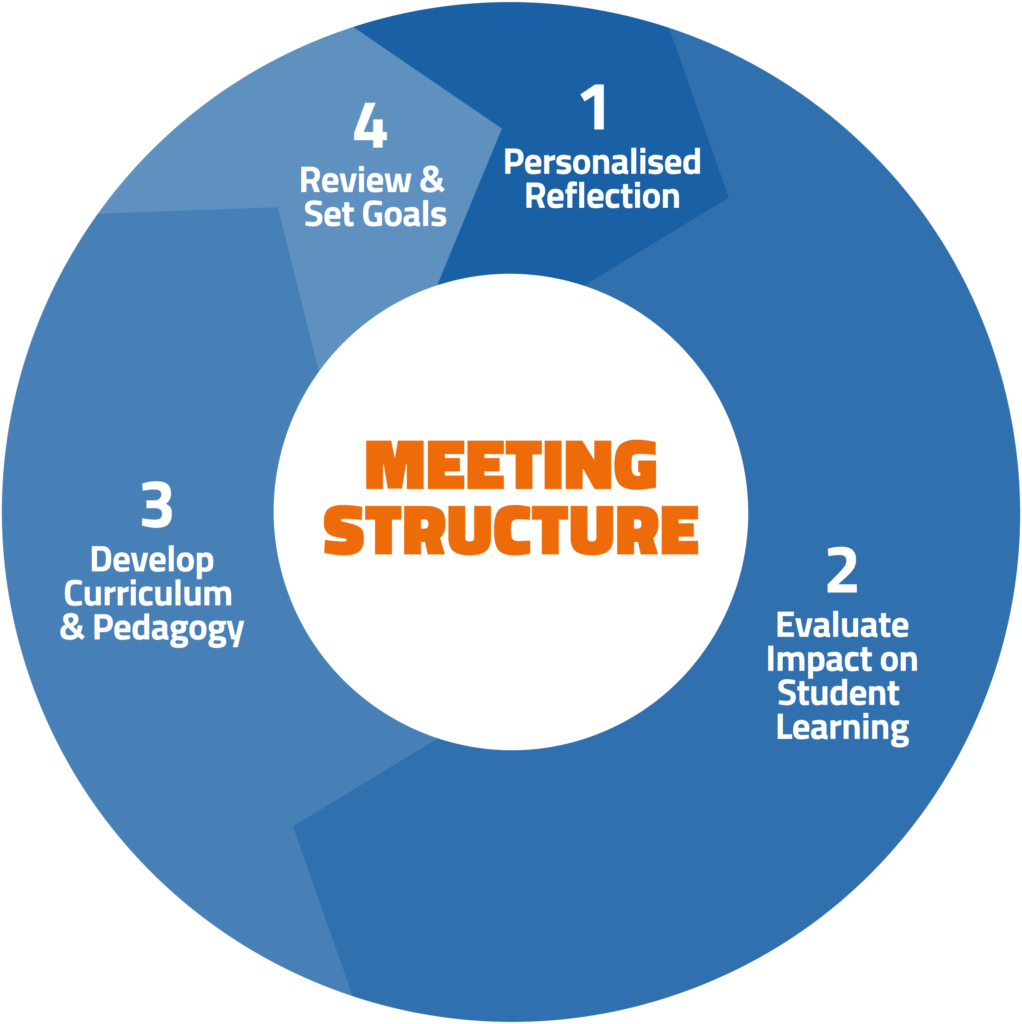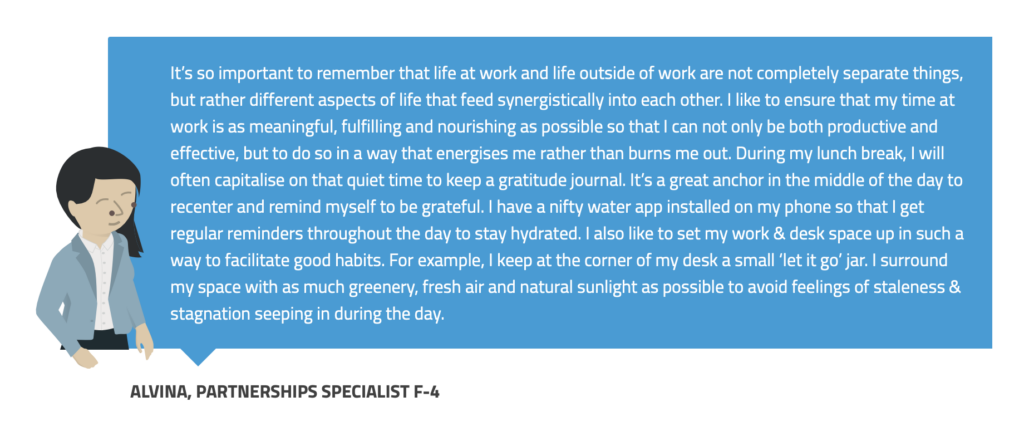We all know forming good habits and routines is one of the best ways to set yourself up for a successful year. Research shows that it takes a minimum of 21 days for an old mental image to dissolve and a new one to jell.
So the first month back is the perfect time to prepare yourself for the year ahead. We have put together our top 5 ways to help you start the year off the right way so you can manage your workload, reduce stress levels and continue building strong relationships with your colleagues.
Reflect
No one could have ever predicted what 2020 turned out to be. No matter who you are or where you are from, the pandemic had some effect on all of us. For the school community, it meant uncertainty and in some states the sudden shift to remote learning which created challenges that had never been experienced before. As we all know, there was very little time for planning and transitioning, which meant it was pretty much impossible to get every decision right on the first go. But as always, teachers and school communities soldiered through and made remote learning as seamless as possible, so students had the opportunity to remain connected and learning could continue.
Reflecting on 2020 might bring back some memories of failed zoom lessons or mid-week breakdowns we would rather forget, but self-reflection can be a great way to see what you did well and what skills or traits you would like to develop further this year. Self-assessment will not only help you progress as an individual but it will support you in becoming a stronger teacher.
We all know team reflections can be time-consuming, but they are an essential part of bringing closure to work and learning experiences. They open an opportunity to bring your team together, to bond over shared encounters and to discuss learnings from the prior year. Ideally reflection should use no more than 5% of a group’s actual performance time and would work towards producing an action plan so your team has a clear vision of your goals moving forward.
Patricia Hare (Dean of Developmental Programs, Brevard Community College) has said faculty who commit to use reflection on a regular basis, find that the benefits of team learning, productivity, and participant satisfaction significantly outweigh the initial time investment.

Our Maths Pathway teachers use this structure to help guide their meetings and get the most out of their time. This structure is a great way to initiate reflection time with your team to ensure it is not missed in your planning and goal-setting process.

Plan and set realistic goals
Setting SMART goals (specific, measurable, attainable, relevant, and time-bound) may not be a new strategy, but it is a good place to start when establishing objectives that need to be achievable and timely. It’s a common mistake to underestimate the amount of time it takes to complete a task, especially when putting yourself in a distraction- free -mode can be quite a challenge with colleagues, students, phones and emails screaming for your attention. When we underestimate, there is a compounding effect, adding pressure on top of what seems like a never-ending pile of responsibilities. Hence it’s always better to overestimate the time we allow ourselves to complete a task, so there is room to make mistakes, get side-tracked and still finish our work on time. This is especially important when our peers are setting their own deadlines based on our timeframes.
Anyone can set a goal or make a plan but unless you are going to stick to it there is not much point in making it in the first place. Aim to measure outcomes that give you not just an indication of progression but also a sense of accomplishment, it’s much easier to work towards goals you are motivated to achieve.
Using data and past experiences to influence our planning decisions is a great way to get an accurate understanding of what ideas have been successful, what needs more development and what can be pursued further to gain more insights. You can try the “Stop, Start, Continue” model based on this information.
Organising your calendar at the start of each Term is something you probably do, but going a bit extra on it will give you a sense of greater control. Setting blocks of time on specific days for certain tasks or for impromptu meetings can have a significant impact on productivity. Setting weekly, fortnightly or monthly meetings with individuals or teams is a great way to make sure you always have time set-out to collaborate, problem-solve or just catch up, even if you don’t always need to use it. Don’t forget to block out time for yourself each day or week to have some uninterrupted time to yourself, to recover, reflect or catch-up on things.


Professional development
This year we still need to be flexible when it comes to professional development. A lot of PD and educational opportunities for the schooling community may still be run online with the hope that some events, conferences and retreats will be able to go ahead in person. Either way Maths Pathway will be continuing to run as many events as possible to keep our community connected and our teachers informed.
Professional Development Resources
Maths Pathway has a bank of webinars in our Media Library. Their topics range from Rich Learning to the importance of effective feedback in the classroom and are run by influential Maths educators. These webinars are the perfect way to listen to and learn from these impactful conversations on your own schedule. Our next live webinar will be held on the 25th of March, with more information about it’s topic and speakers to be released on the 2nd of March via email and social media.
The Maths Pathway events calendar is the best way to stay up to date with what training programs, workshops and retreats are coming up. Maths Pathway runs 101 training for new teachers so every Maths Pathway teacher has all the skills, knowledge and resources they need to be successful in supporting their students and colleagues in the Maths Pathway learning journey.
Educational conferences are another great way to take part in professional development. The Maths Association of Victoria, the Australian Association of Mathematics Teachers (AAMT) and The National Education Summit all hold conferences that bring together some of the best educators and leading voices to support and inform Australian teachers on best practice.

Creating positive relationships
The average person will spend 90,000 hours working in their lifetime, which is equivalent to one-third of a person’s life. This is a large portion of time, which is why so many people seek out workplaces that have a supportive culture and prioritize employee wellbeing.
It is no surprise that having positive relationships in the workplace will directly relate to a person’s overall happiness and motivation. If you have good friends at work, you are 7 times more likely to be engaged in your job. So, allocating time and energy to building rapport with your colleagues is sure to make your time and theirs at work more enjoyable.
The saying is as old as time but treat people how you want to be treated. Lead by example when it comes to treating people with respect and consideration. Having open and honest conversations in your workplace will help people feel comfortable and further build friendships.
Lunch-time walks, fortnightly or monthly coffee dates, birthday celebrations at lunch and Friday after-work drinks at the local pub are some really easy and fun ways to form connections. If your team has room in the budget for something a little bit more exciting, then lawn bowls, a trivia night, catered morning tea, an escape room, or a murder mystery are perfect activity ideas you could take to your leadership team.

Allocate time for the things you love
Whether you love cooking, binge-watching a new series on Netflix or taking a stroll in the park, finding time for the things we love is the best way to unwind after a busy day or week.
Most people are coming off a restful summer break and feel rejuvenated and ready for the year. However, this rejuvenation can quickly dissipate if we don’t prioritise our downtime at the end of the day. A healthy work-life balance and making our mental wellbeing a priority are essential ingredients in avoiding burnout.
It is well known that exercise, eating a balanced diet, and meditating each day to clear our minds have phenomenal effects on how we feel, but we also need to find time to do the things that we are actually excited about. Making plans and adding activities into our routines will ensure we actually do them. So don’t forget to take that walk to the coffee shop in the morning, or set a date for your game night with friends, or even to plan that getaway you’ve been thinking about (restrictions pending). It will be sure to help release those happy hormones energising you for the week.

Join our community!
Subscribe to our Facebook and Instagram for access to more great activities, the latest education news, quizzes and our teacher community.